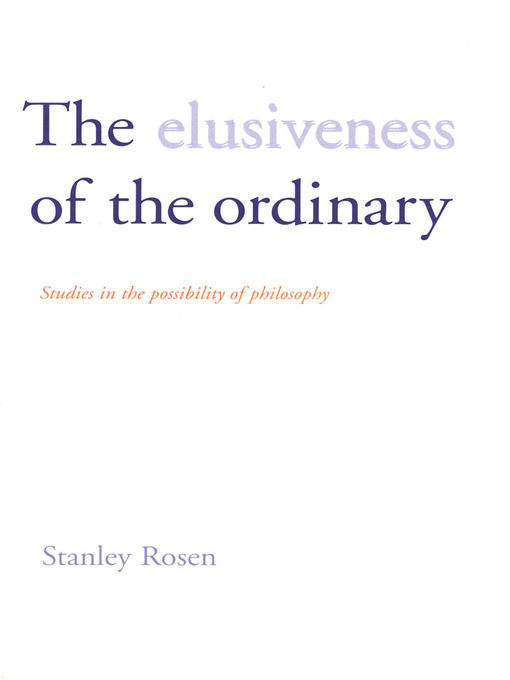The concept of the ordinary, along with such cognates as everyday life, ordinary language, and ordinary experience, has come into special prominence in late modern philosophy. Thinkers have employed two opposing yet related responses to the notion of the ordinary: scientific and phenomenological approaches on the one hand, and on the other, more informal or even anti-scientific procedures. Eminent philosopher Stanley Rosen here presents the first comprehensive study of the main approaches to theoretical mastery of ordinary experience. He evaluates the responses of a wide range of modern and contemporary thinkers and grapples with the peculiar problem of the ordinary—how to define it in its own terms without transforming it into a technical (and so, extraordinary) artifact.
Rosen's approach is both historical and philosophical. He offers Montesquieu and Husserl as examples of the scientific approach to ordinary experience; contrasts Kant and Heidegger with Aristotle to illustrate the transcendental approach and its main alternatives; discusses attempts by Wittgenstein and Strauss to return to the pre-theoretical domain; and analyzes the differences among such thinkers as Moore, Austin, Grice, and Russell with respect to the analytical response to ordinary language. Rosen concludes with a theoretical exploration of the central problem of how to capture the elusive ordinary intact.

